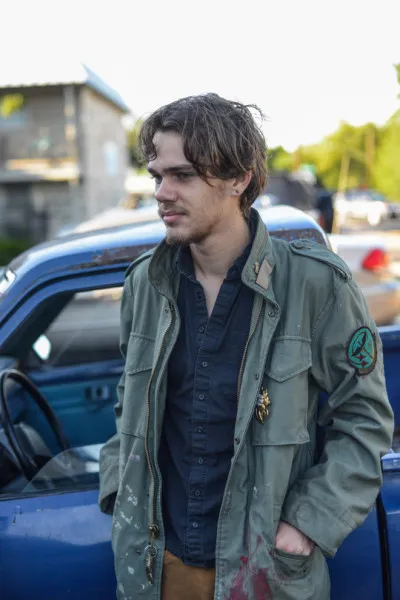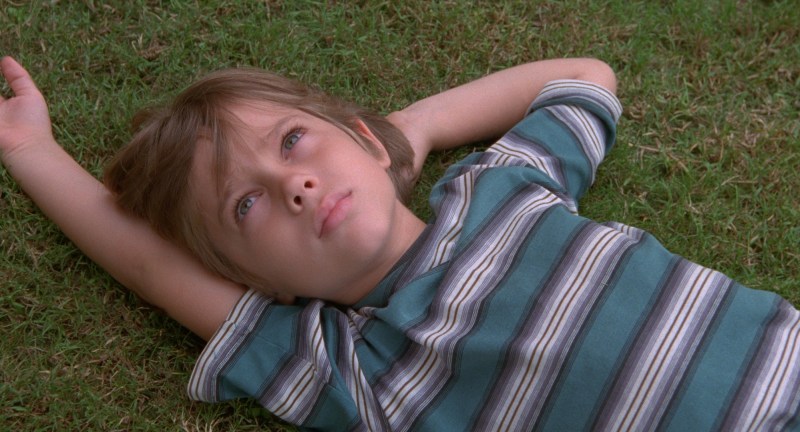
Imagine if you could rewatch the last 12 years of your life in just two and a half hours. That’s exactly what 20-year-old Ellar Coltrane did as the star of Richard Linklater’s latest film, “Boyhood.” Coltrane plays Mason Evans, Jr., a young boy living in Texas with his older sister, Samantha (Lorelei Linklater), and single mother, Olivia (Patricia Arquette). What unfolds is a masterfully woven tale of what it means to grow up: Linklater takes us through Mason’s childhood, from the earnest conversations he has with his father about the potential existence of elves, to the difficulties of dealing with a less-than-exemplary stepfather, to first love and beyond. Indeed, “Boyhood” spins the mundane hum of everyday life into a meditation on the human condition.
Coltrane talked with us about working on and behind the scenes, the nature of time, and watching himself grow up on the big screen.
The Stanford Daily: From the beginning to the end, did you know how Linklater envisioned Mason at each stage of growing up?
Coltrane: I don’t think anyone entirely did. Richard definitely had an outline of the story and the plot and the things the family would go through, but as far as the more specific, emotional development of the characters, that was developed through a lot of workshopping…it’s all an amalgamation of our experiences and things that happened to us as the years went on. We didn’t know who the characters were going to be. We had some idea that they would be influenced by who we were, but they’re also still very much characters. It’s all intertwined.
TSD: How did you pick and choose what to contribute to [Mason’s] development?
Coltrane: It’s hard to say for me, because the process that we went through, a very collaborative process, was also guided by Richard. He has an amazing way of including you and making everyone involved a part of the collaboration. But it’s also very much his story and his project. He’s the magician. Rick would be talking about, ‘hey, I was thinking about this, and this is happening to Mason, and this happened to me when I was a kid, and this happened to Ethan when he was a kid, and I have this relationship with my child’…and that sort of thing. I would share what that would make me think of in my life, and how these things related, and find a story from all of that. It all kind of happened naturally. There was never really a time when something happened to me in my life and I [immediately] thought, “Oh, that should be in the movie.”
TSD: What was your reaction to seeing the film for the first time?
Coltrane: It’s hard to describe. It was very, very emotional. It was hard to really think much after living with it for so long, and having the project be such a part of my life, and something that, I don’t know, I kind of thought about all the time but also something I would forget about most of the time in another way. It was very, very surreal to see it actually played out on screen and very emotional to see my life like that and see myself in that way. It’s really elusive, the way we change over time…it’s something you always kind of wonder about, and just to see it all together like that is really profound. [It’s] similar to the way that other people are affected by watching it, but it’s more personal for me.
TSD: Do you have an opinion on why the film was so well received?
Coltrane: I think there are a lot of reasons, but…it’s simple and human. The nature of the story allows it to tell something that very few other stories really do. It’s just a very subtle and emotional development between really close people. And [it’s about] just the way that time unfolds and the way we perceive time and how little we really understand about the way that we perceive time…I think, even if it’s subconscious, that’s something that all of us really crave. [We] crav[e] explor[ing] that in a more genuine and tender kind of way – what it is to be human, what it is to love and interact with people…
That’s what all stories are about to some extent, but so many stories that are told these days are so dramatic and incredible [and] don’t exactly mirror most of our lives very well. I think just to have a story that is really lovingly crafted, and an epic in a way, that just tells a simple and human story, is really satisfying to people…to see a life that resembles theirs treated as if it’s important.
TSD: You talked about your first reaction to [the film]…has your perspective on your growing up or time in your own life changed after watching the film so many times?
Coltrane: Yeah, absolutely. It changes every time I watch it. There’s a lot for me to see. It has become easier. I think the first few times I watched it, it was a very personal experience. It was very much just about watching myself and all these memories that it brought back, and all these very internal, unexplainable things that caused me to feel and think about things.
But as I’ve watched it more, I’ve kind of gotten past that, and [I’m] not just freaking out about my role in it, which is a more beneficial way to experience [the film].
TSD: In your role both behind-the-scenes writing the film, and as an actor, what was that experience like for you? Is that something you want to do in the future, as well?
Coltrane: Yeah. I mean, it’s incredible to have that kind of involvement in something. I don’t have many other experiences working on films to compare it to, so I would imagine working on a film in that way would be very different from just being handed a script. It’s really satisfying to be able to be lost in something like that and put so much of yourself into it and be able to see it reflected. I definitely would like to work on another project in that way.
TSD: Does film speak to you in a different way than other media do? There’s a lot of talk about the visual impact of the film resting in seeing you growing up on the screen.
Coltrane: Yeah, definitely. I’m a very visually-oriented person, and for me, that’s one of the most profound parts of it…the way that I physically change, and seeing that I recognize myself in that seven-year-old person. I never expected that. Watching those early scenes, I don’t necessarily remember being that person, but I recognize myself in him, and that’s very strange.
This interview has been condensed.
Contact Madeleine Han at mhan95 “at” stanford.edu
